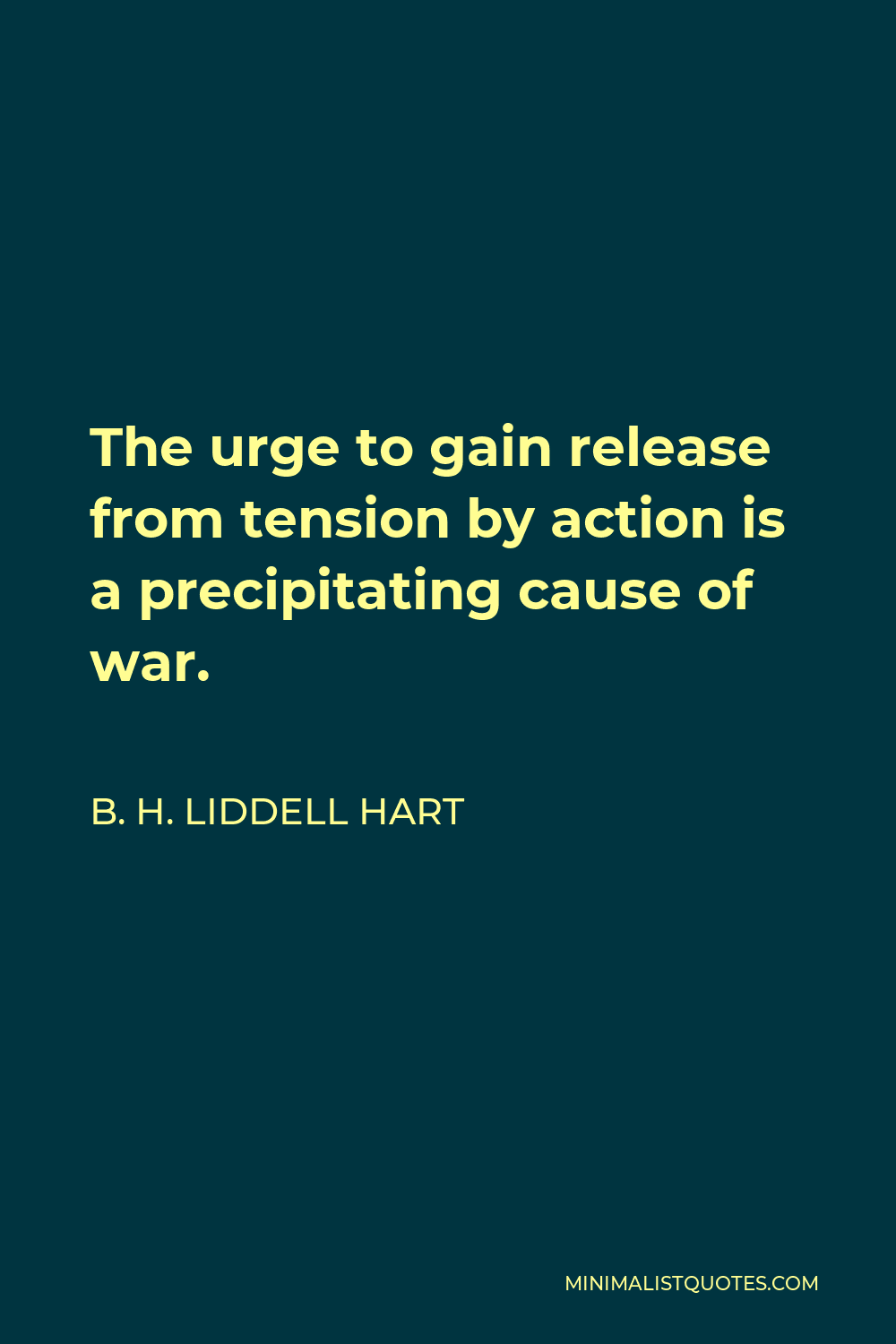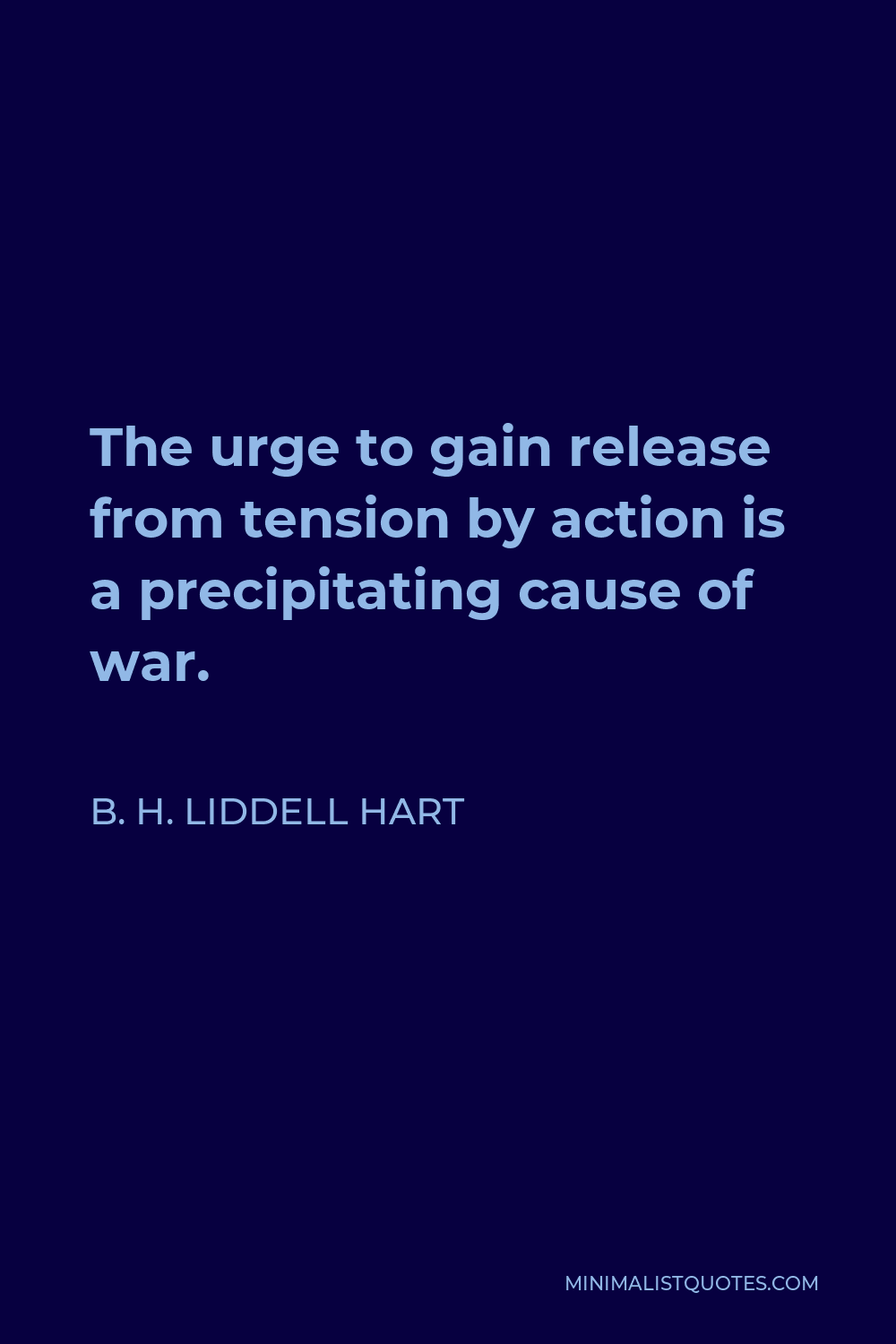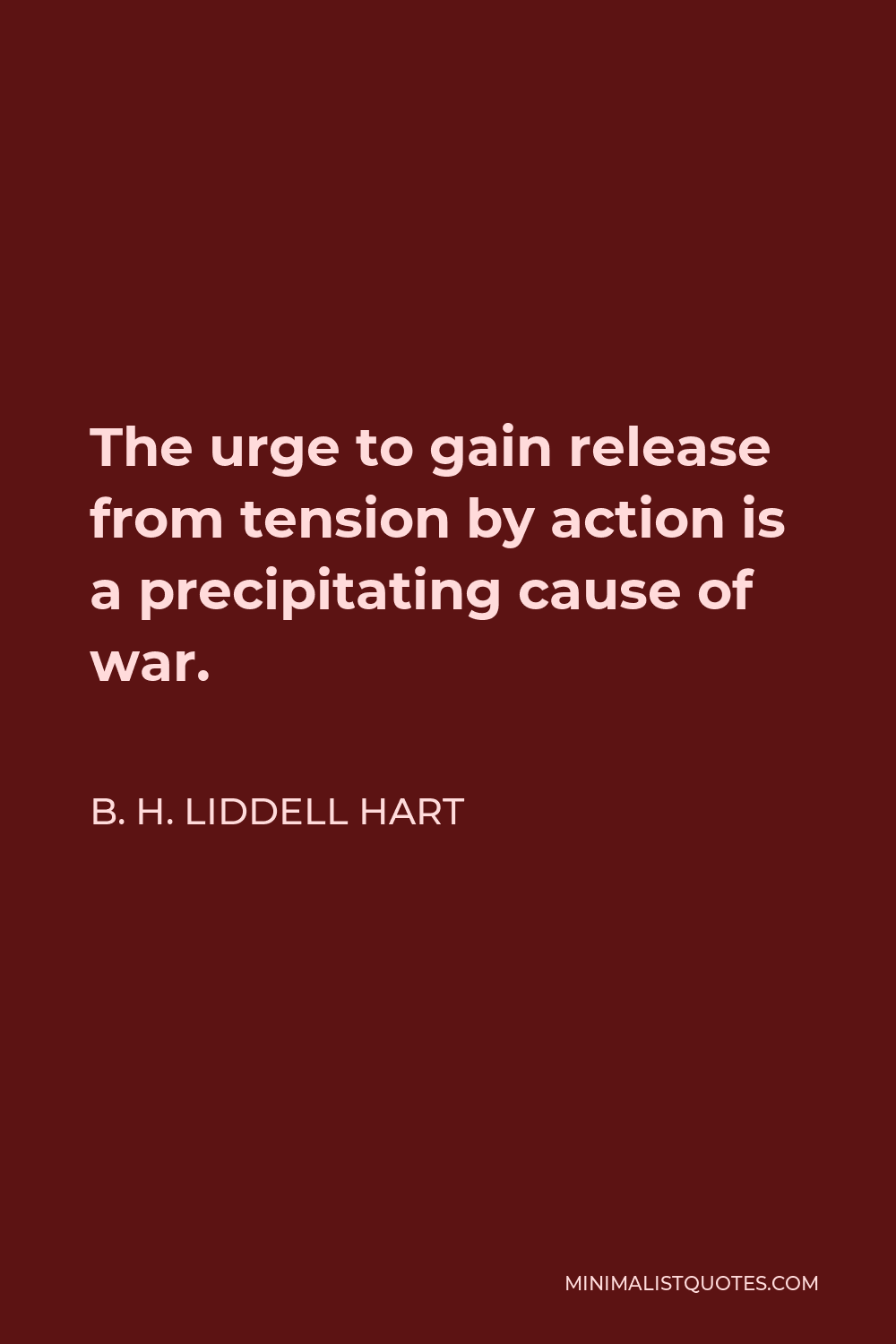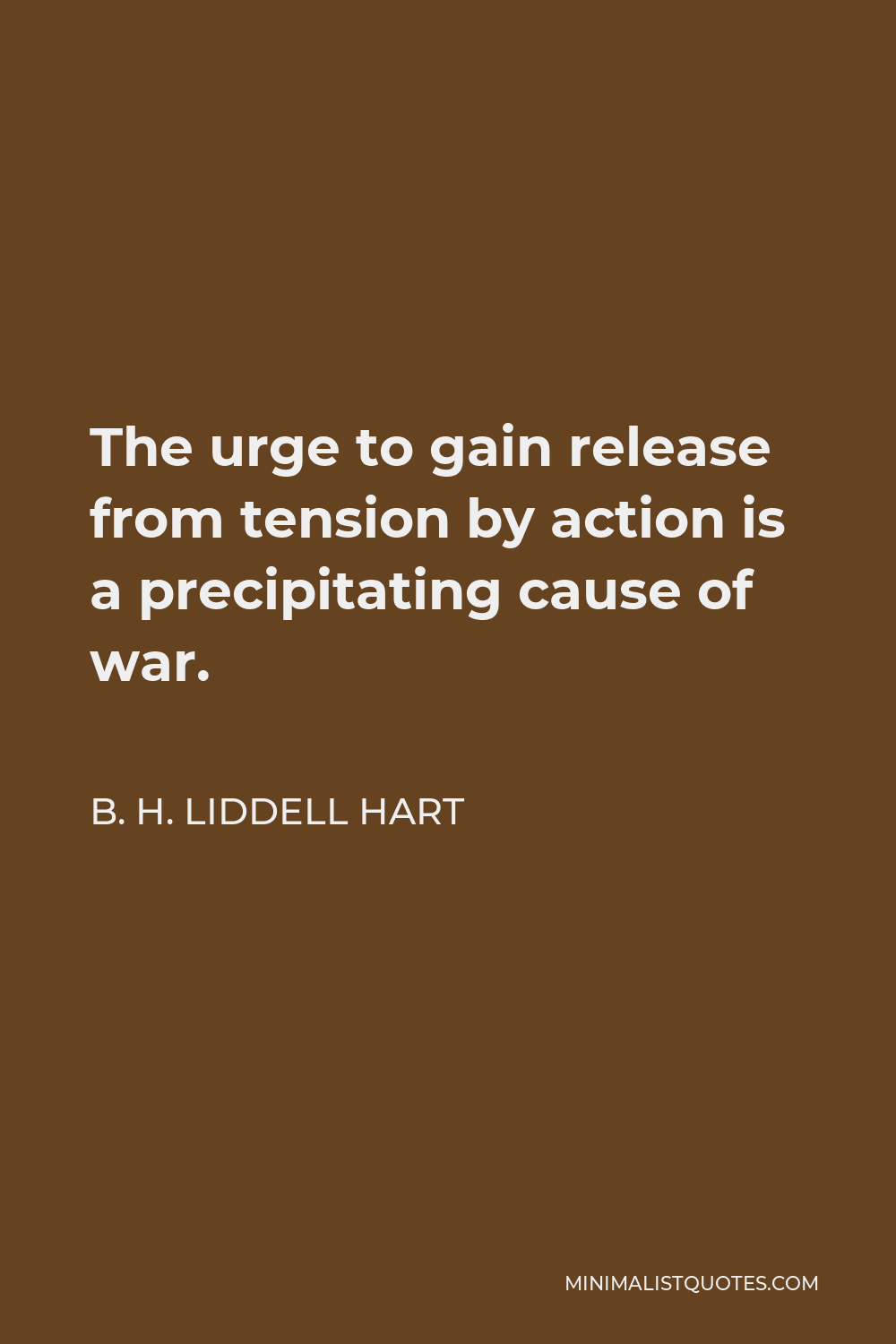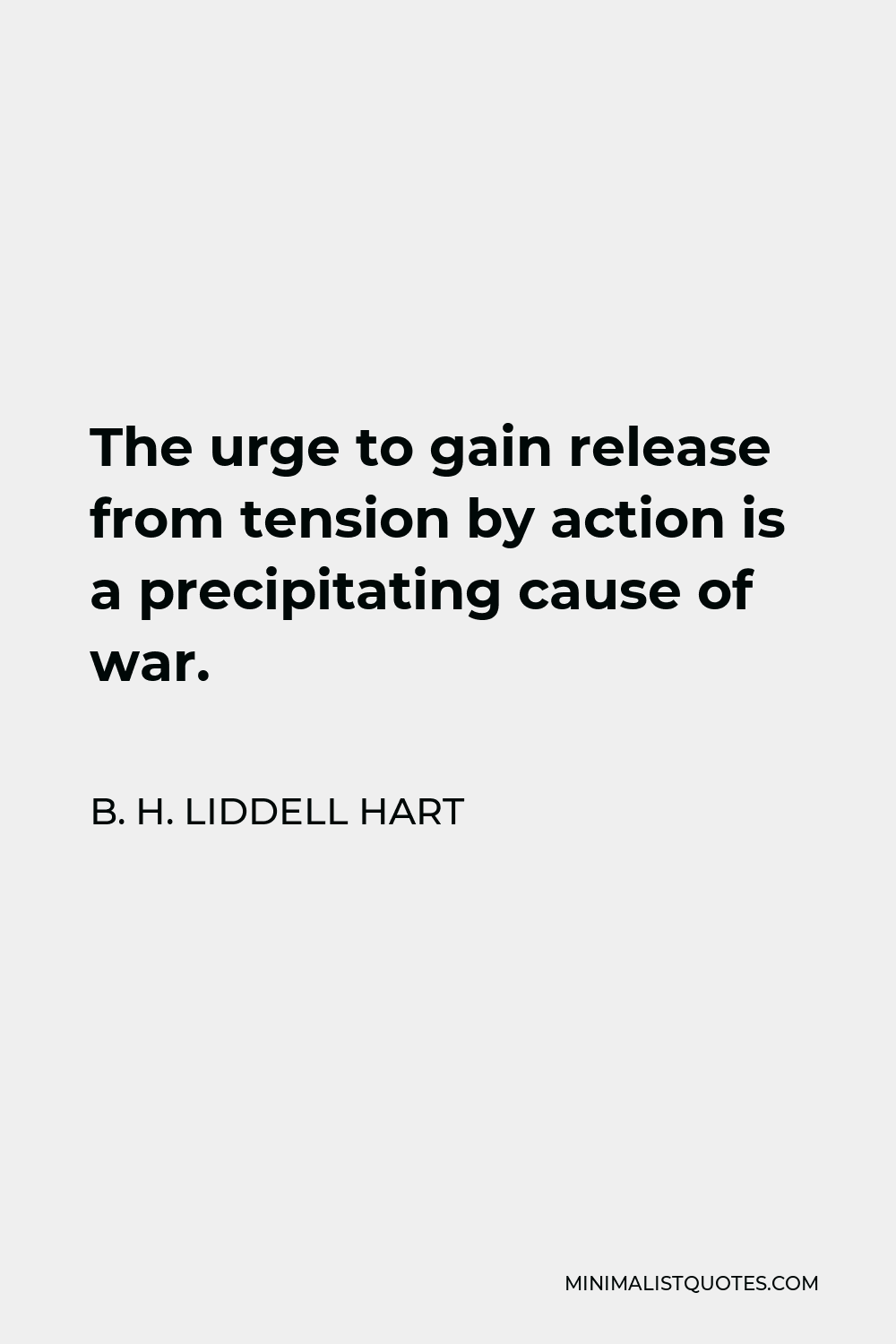As has happened so often in history, victory had bred a complacency and fostered an orthodoxy which led to defeat in the next war.
B. H. LIDDELL HARTThe urge to gain release from tension by action is a precipitating cause of war.
More B. H. Liddell Hart Quotes
-





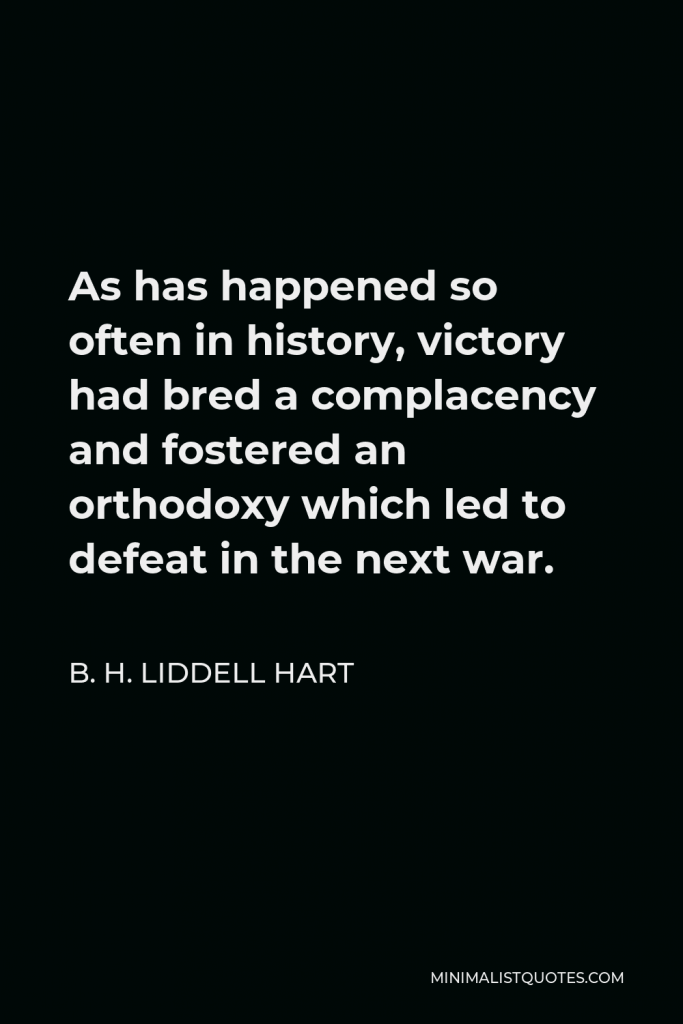

-





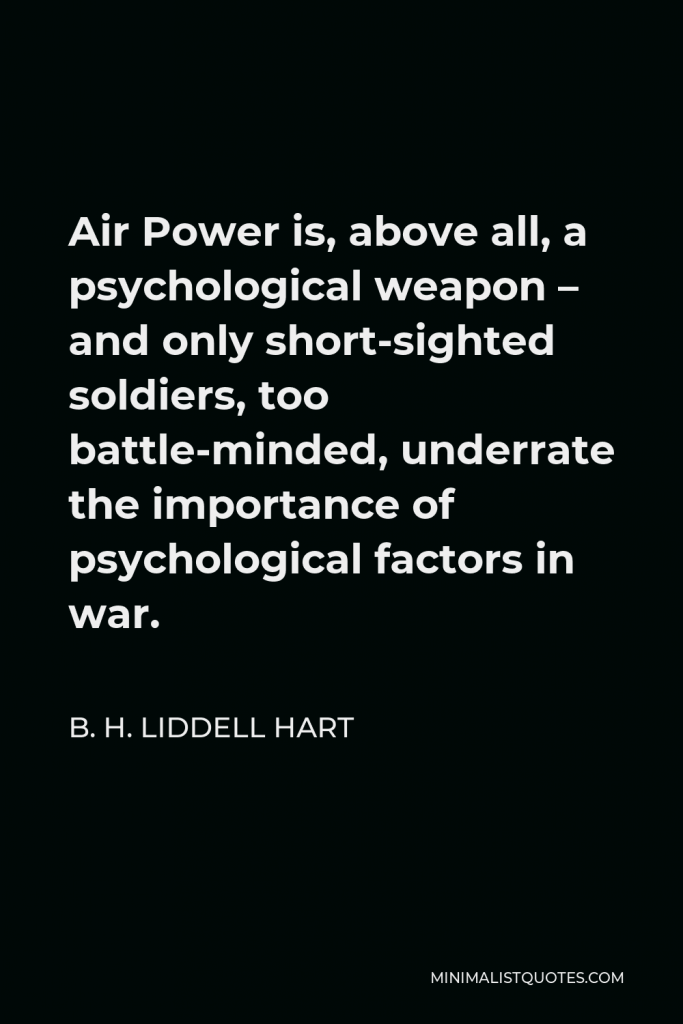

Air Power is, above all, a psychological weapon – and only short-sighted soldiers, too battle-minded, underrate the importance of psychological factors in war.
B. H. LIDDELL HART -





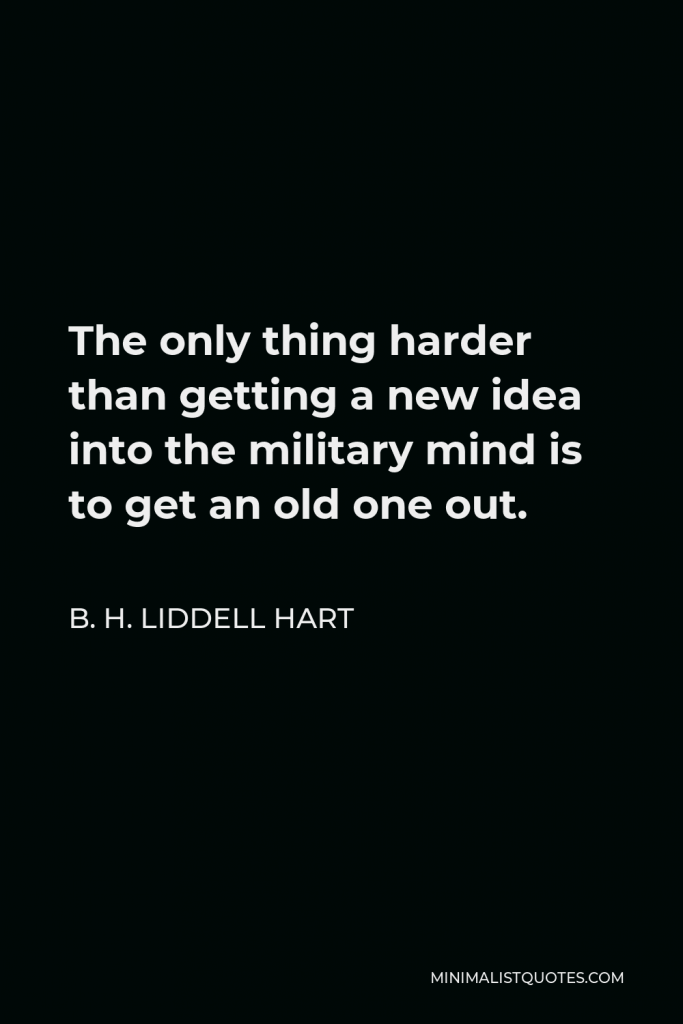

The only thing harder than getting a new idea into the military mind is to get an old one out.
B. H. LIDDELL HART -





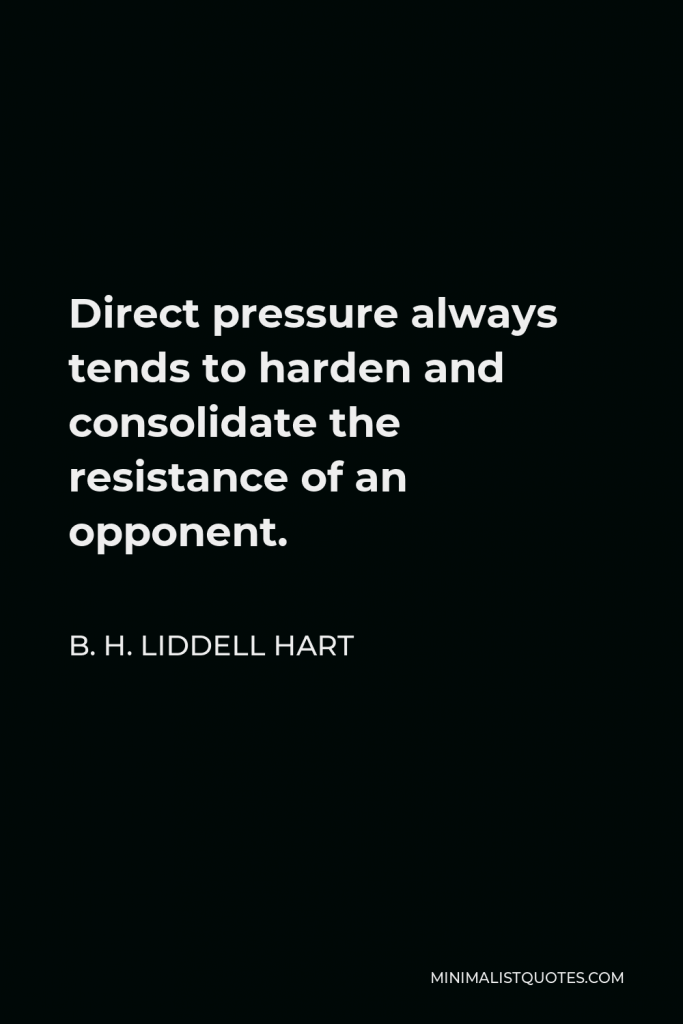

Direct pressure always tends to harden and consolidate the resistance of an opponent.
B. H. LIDDELL HART -





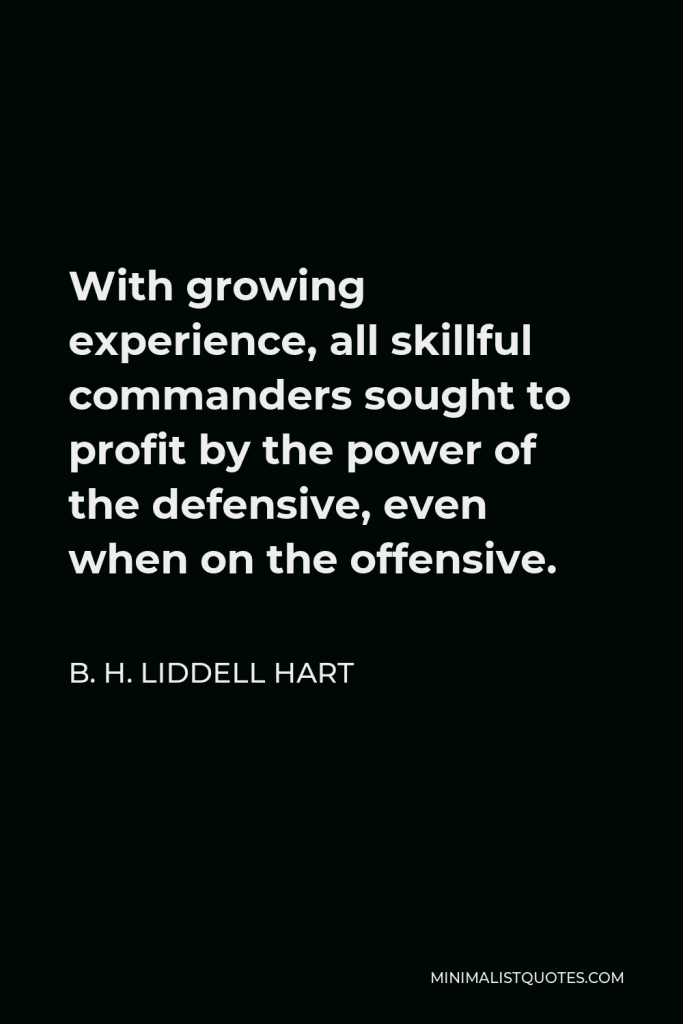

With growing experience, all skillful commanders sought to profit by the power of the defensive, even when on the offensive.
B. H. LIDDELL HART -





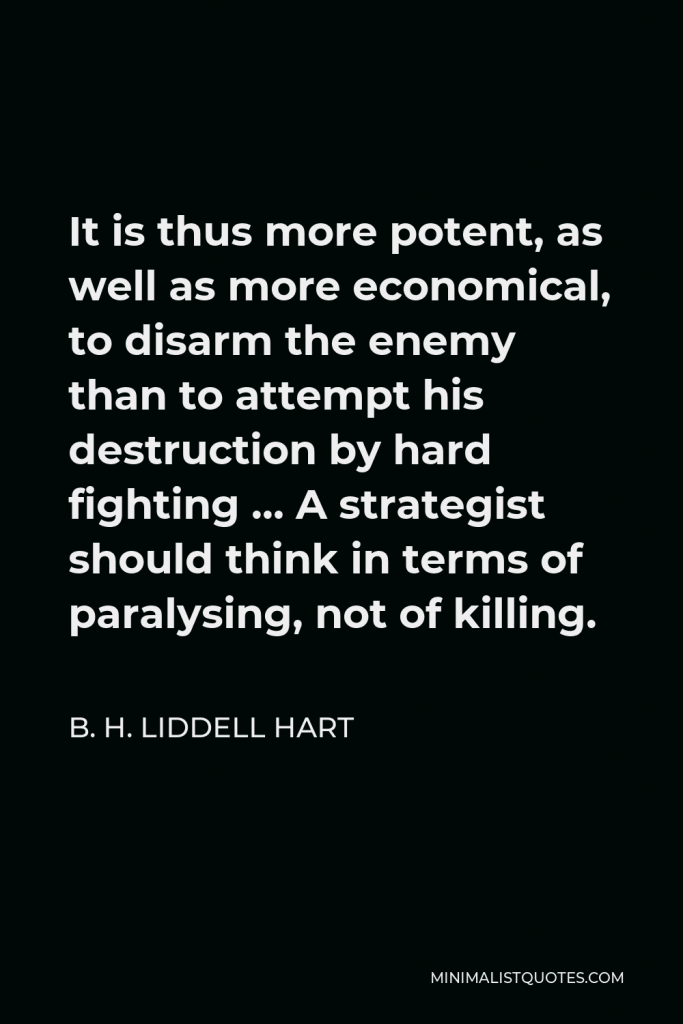

It is thus more potent, as well as more economical, to disarm the enemy than to attempt his destruction by hard fighting … A strategist should think in terms of paralysing, not of killing.
B. H. LIDDELL HART -





![B. H. Liddell Hart Quote - [The] aim is not so much to seek battle as to seek a strategic situation so advantageous that if it does not of itself produce the decision, its continuation by a battle is sure to achieve this. In other words, dislocation is the aim of strategy.](https://minimalistquotes.com/wp-content/uploads/2022/10/the-aim-is-not-so-much-to-seek-battle-as-to-seek-a-683x1024.jpg)

[The] aim is not so much to seek battle as to seek a strategic situation so advantageous that if it does not of itself produce the decision, its continuation by a battle is sure to achieve this. In other words, dislocation is the aim of strategy.
B. H. LIDDELL HART -





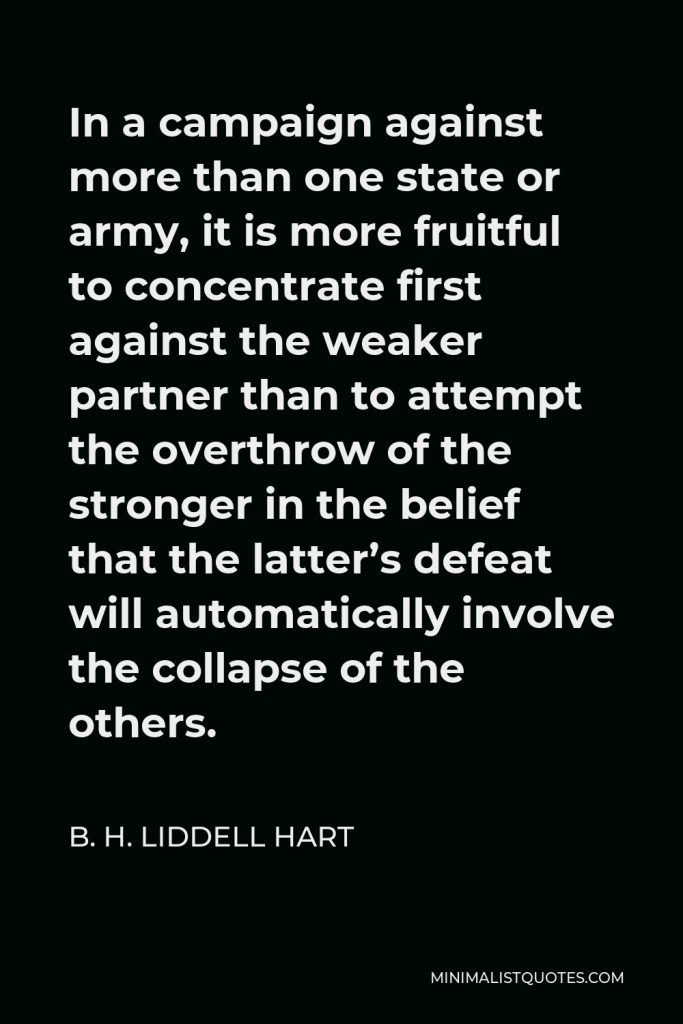

In a campaign against more than one state or army, it is more fruitful to concentrate first against the weaker partner than to attempt the overthrow of the stronger in the belief that the latter’s defeat will automatically involve the collapse of the others.
B. H. LIDDELL HART -





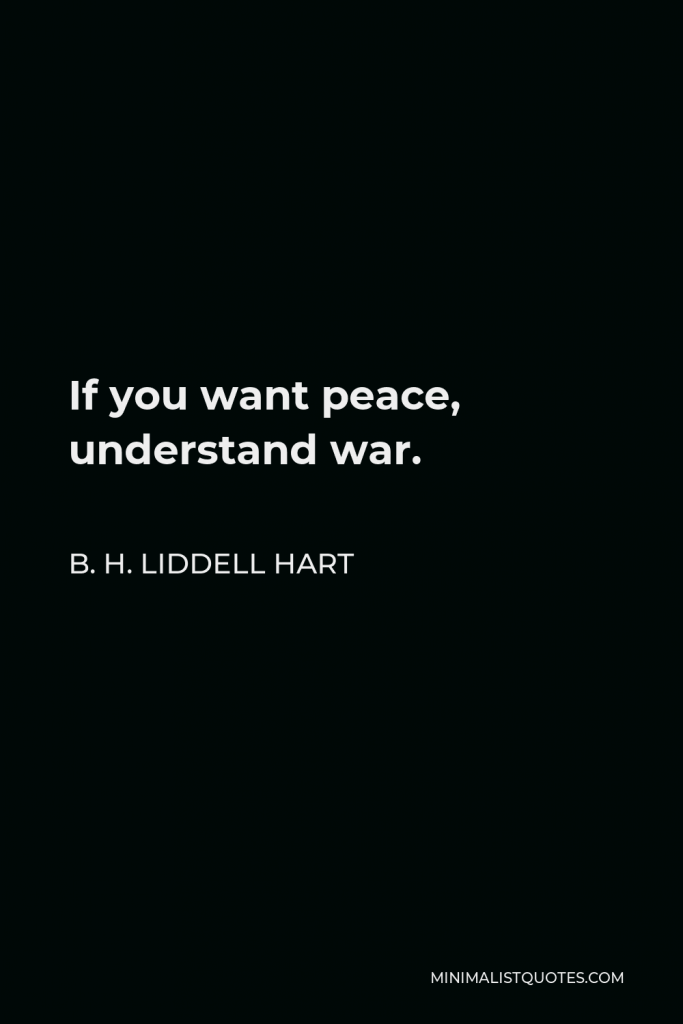

If you want peace, understand war.
B. H. LIDDELL HART -





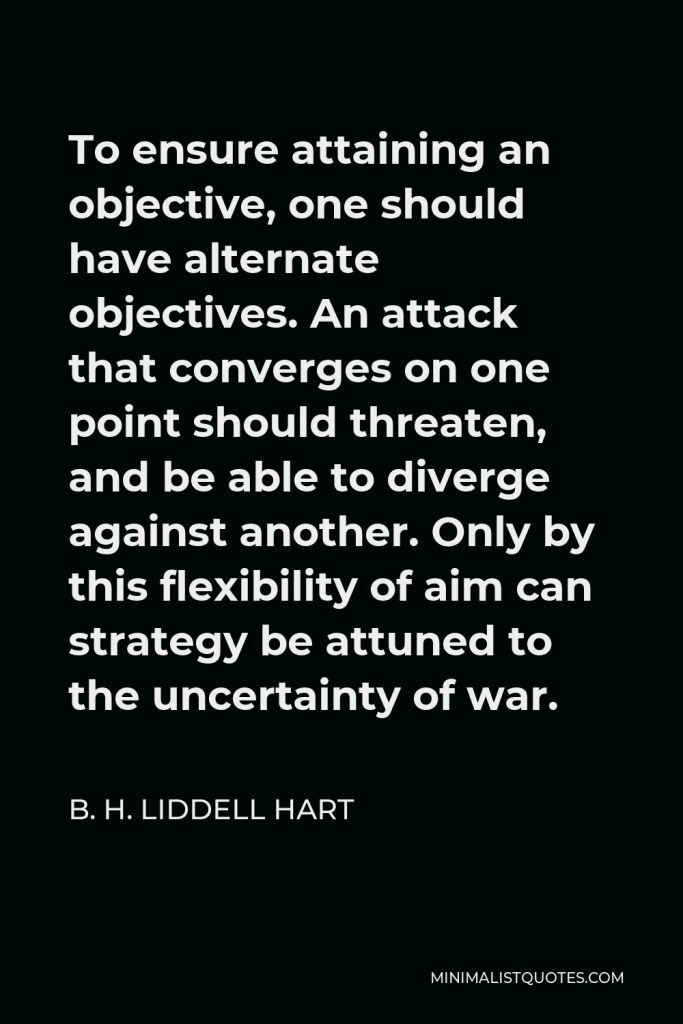

To ensure attaining an objective, one should have alternate objectives. An attack that converges on one point should threaten, and be able to diverge against another. Only by this flexibility of aim can strategy be attuned to the uncertainty of war.
B. H. LIDDELL HART -





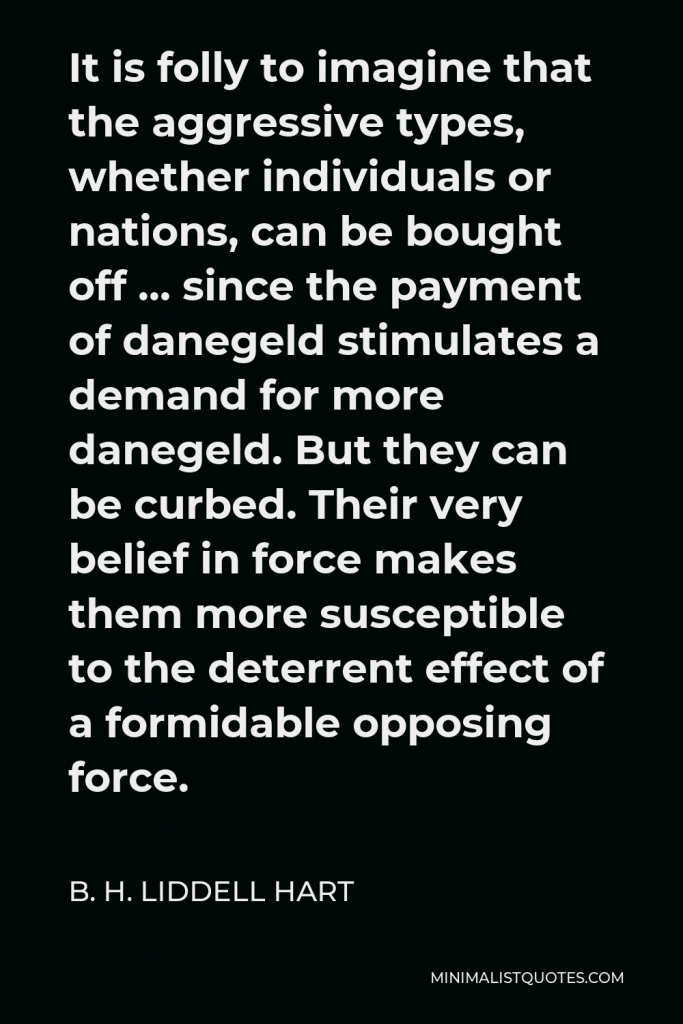

It is folly to imagine that the aggressive types, whether individuals or nations, can be bought off … since the payment of danegeld stimulates a demand for more danegeld. But they can be curbed. Their very belief in force makes them more susceptible to the deterrent effect of a formidable opposing force.
B. H. LIDDELL HART -





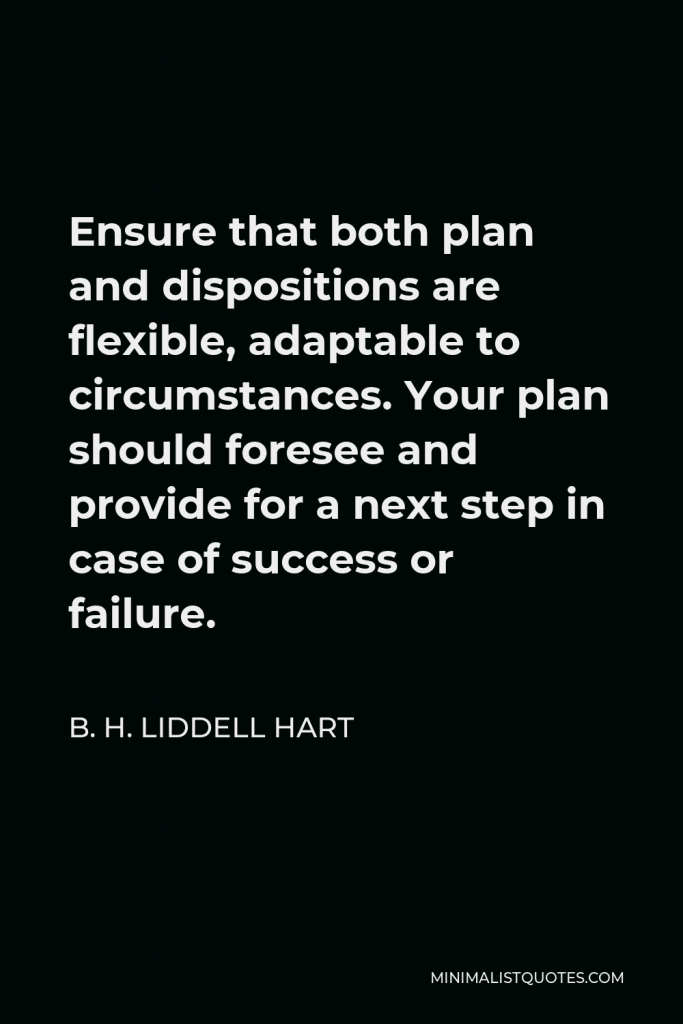

Ensure that both plan and dispositions are flexible, adaptable to circumstances. Your plan should foresee and provide for a next step in case of success or failure.
B. H. LIDDELL HART -





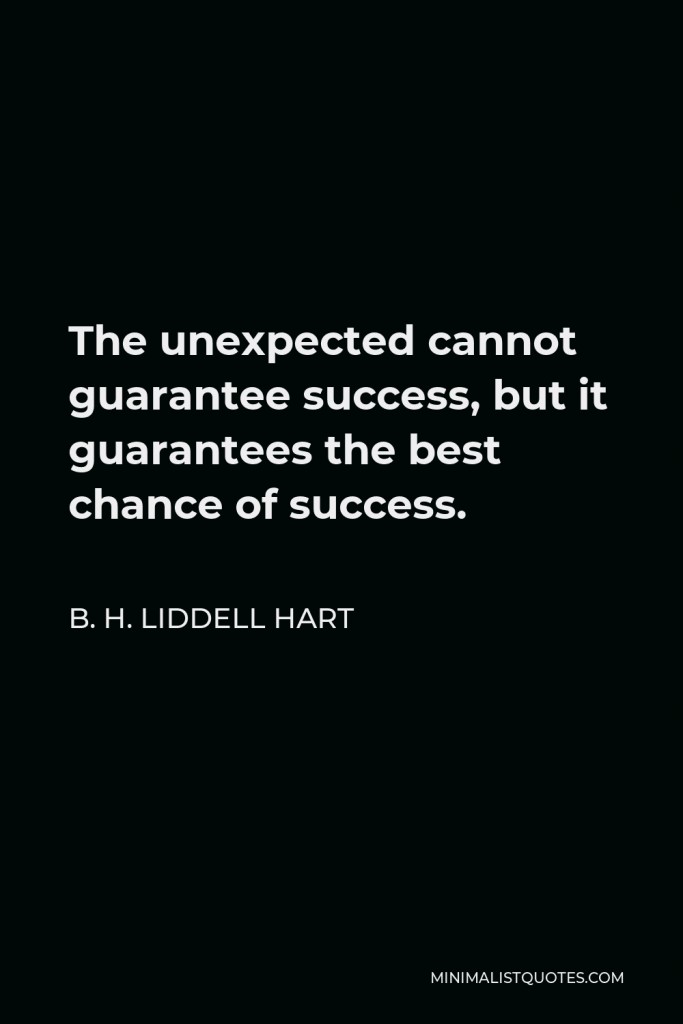

The unexpected cannot guarantee success, but it guarantees the best chance of success.
B. H. LIDDELL HART -





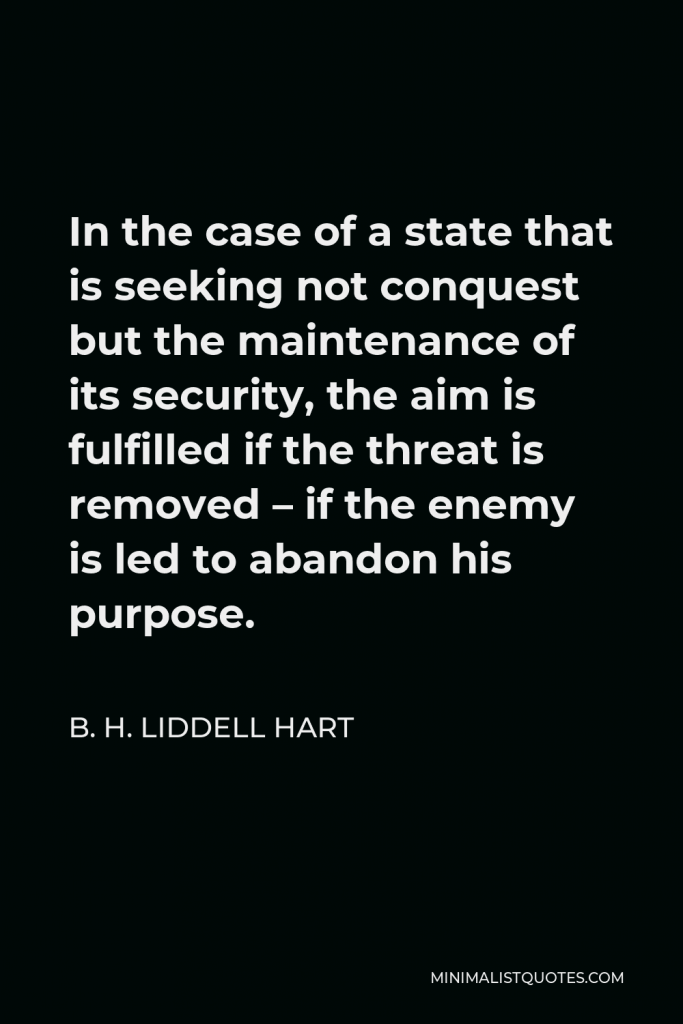

In the case of a state that is seeking not conquest but the maintenance of its security, the aim is fulfilled if the threat is removed – if the enemy is led to abandon his purpose.
B. H. LIDDELL HART -





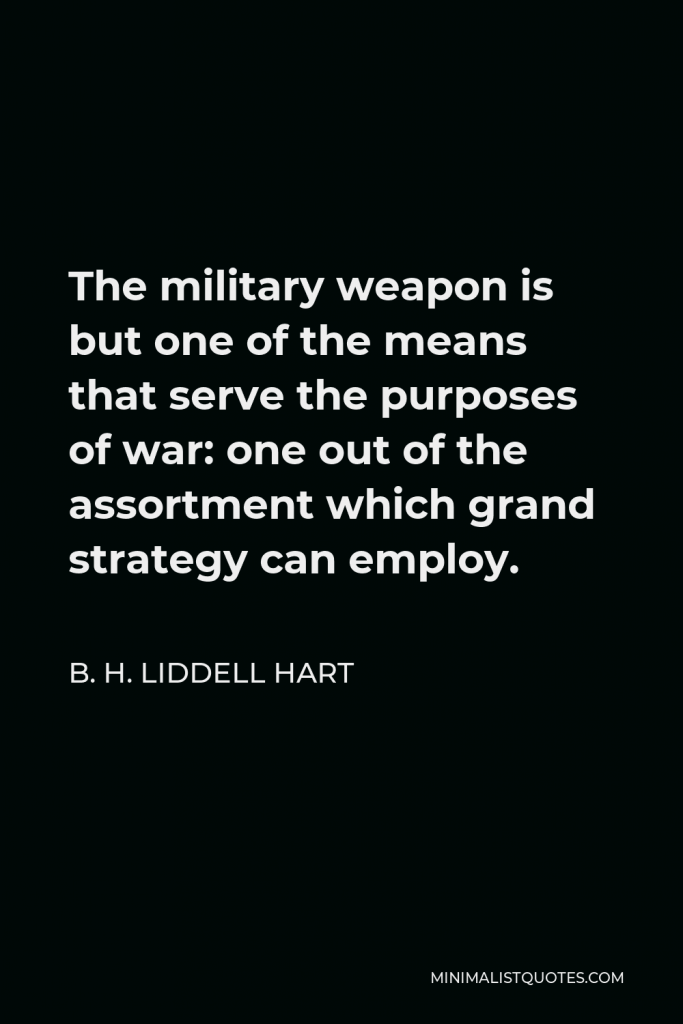

The military weapon is but one of the means that serve the purposes of war: one out of the assortment which grand strategy can employ.
B. H. LIDDELL HART -





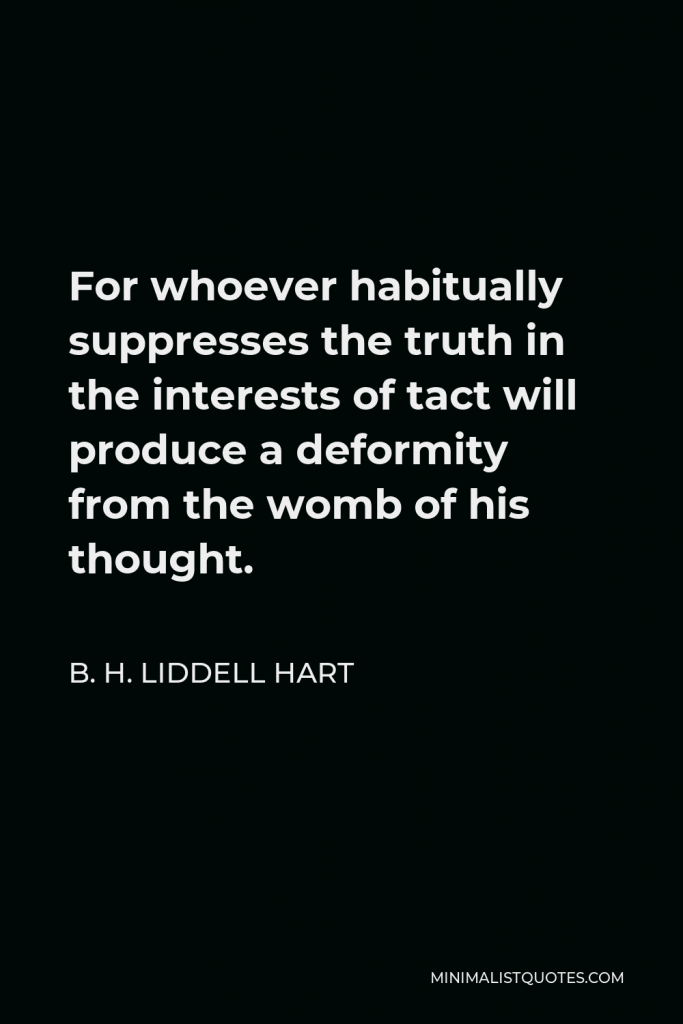

For whoever habitually suppresses the truth in the interests of tact will produce a deformity from the womb of his thought.
B. H. LIDDELL HART

